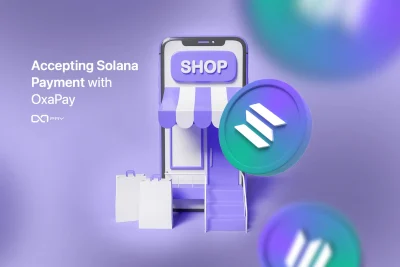In today’s digital economy, securing transactions is crucial, as businesses and consumers increasingly rely on electronic systems. Blockchain technology has proven to be a transformative tool in securing payments, utilizing its unique features to protect against fraud and unauthorized access. This article delves into how secure payments can be made with blockchain, explores the role of cryptographic techniques, and outlines the advantages it offers to businesses and their customers.
The Security Mechanisms of Blockchain
Blockchain technology secures transactions through a combination of decentralized networks, cryptographic hashes, and consensus protocols. Unlike traditional centralized databases, blockchain distributes its data across a network of computers, making it highly resistant to single points of failure and attacks. Each transaction on a blockchain is recorded as a block and linked to the previous one, forming a chain. This structure, coupled with cryptographic hashes, ensures that any attempt to alter transaction data will be evident and rejected by the network.
How Blockchain Prevents Fraud
Blockchain technology is explicitly designed to prevent fraud. Each transaction requires approval through consensus from the majority of network nodes before recording. This process confirms the transaction’s validity among all participants. Once recorded, a transaction becomes immutable, it cannot be altered or deleted. This permanence is critical in fraud prevention, ensuring that no single party can change a transaction once it’s on the blockchain, thus securing the integrity of each transaction.
Cryptographic Techniques Used in Blockchain
Blockchain security strongly depends on cryptographic techniques like public and private keys, and hashing functions. Every participant in a blockchain possesses a unique set of keys: a public key that they share with the network, and a private key they keep secret. When someone initiates a transaction, they sign it with their private key. The network then verifies it using the public key. This method guarantees that transactions cannot be forged, as only the private key holder can initiate valid transactions.
Hashing functions also play a critical role in maintaining blockchain integrity. They take transaction data and produce a fixed-size string of bytes, typically a hash, which is unique to the given input data. Any alteration in the transaction data, even a minor one, results in a completely different hash. This characteristic enables the quick detection of tampering.
Exploring the Role of Encryption and Consensus in Security
Encryption and consensus are fundamental to blockchain’s secure architecture. Cryptographic keys encrypt transactions, ensuring secure communication across the network. Consensus protocols control how transactions are verified and added to the blockchain. This process guarantees that all operations are validated and agreed upon by multiple parties, effectively preventing potential fraud.
Security Challenges and Solutions in Blockchain
Blockchain technology is lauded for its robust security features, yet it is not without vulnerabilities. Notable challenges include the risk of 51% attacks, where an individual or group gains control over the majority of the network’s hashing power, potentially enabling them to alter transactions and perform double-spending. Vulnerabilities in smart contract code can also pose significant risks if exploited.
To counter these threats, adopting network diversification and decentralization can prevent any single entity from dominating the network, thereby mitigating the possibility of 51% attacks. Implementing rigorous audits and adhering to best coding practices are critical for enhancing smart contract security.
Further security concerns arise from endpoint vulnerabilities and Sybil attacks. Multi-factor authentication and secure hardware strengthen endpoint defenses, protecting user interfaces and wallets from attacks. Robust identity verification and reputation systems counter Sybil attacks effectively. Strict time synchronization protocols and encrypted data transmissions guard against time jacking and routing attacks. These measures boost the integrity and trustworthiness of blockchain systems, increasing resilience against various threats.
Security Benefits for Businesses and Their Customers
Adopting blockchain technology offers numerous security benefits for businesses and their customers:
- Enhanced Data Integrity: The immutable and timestamped record of transactions ensures data integrity and builds trust among parties.
- Reduced Risk of Fraud: The decentralized and transparent nature of blockchain makes it extremely difficult for fraudulent activities to occur unnoticed.
- Increased Transaction Security: With advanced cryptographic techniques, transactions are secure and protected from unauthorized access.
Adapting Blockchain Payment Security to Different Business Models
Blockchain technology offers significant benefits across various business models by enhancing transaction security and operational efficiency.
1. Retail Businesses:
Retailers can integrate blockchain-based payment systems to secure payments and reduce fraud. The immutability of blockchain prevents fraudulent chargebacks and unauthorized transaction alterations, protecting sensitive customer data against traditional cybersecurity threats.
2. E-Commerce Platforms:
For online payments, blockchain increases security and efficiency by eliminating intermediaries, reducing fees, and improving profit margins. E-commerce platforms can also use smart contracts to secure payments with blockchain, ensuring that funds are released only when specific conditions, like confirmed delivery, are met. This method not only streamlines the transaction process but also enhances its integrity.
3. Service Industry:
Businesses in the service sector can use blockchain for transparent and dispute-free payment management. This is especially useful in high-value contracts or international dealings, where trust is paramount. Smart contracts can also automate service agreements, ensuring on-time payments and enhancing client satisfaction.
4. B2B Enterprises:
In B2B, particularly those with complex supply chains, blockchain enhances the tracing of goods and secures large-scale financial transactions internationally. This reduces costs and delays associated with traditional banking, maintaining timely business operations.
5. Freelancers and Gig Economy:
Blockchain supports secure, transparent cross-border payments for freelancers and gig workers. It reduces the need for expensive currency conversions. It also lowers the risk of payment fraud.
By integrating blockchain, businesses not only secure their payments but also streamline processes, reduce costs, and improve customer trust and satisfaction. This strategic adoption provides a competitive edge in the digital marketplace.
Implementing Blockchain Payments in Your Business
To integrate blockchain payments, select a blockchain payment gateway that aligns with your business model. Configure the payment system to accept cryptocurrencies and ensure compatibility with your existing financial software. Educate your staff about blockchain operations and security. Roll out the system in phases, starting with pilot transactions to refine the process, followed by full-scale implementation for seamless and secure customer transactions.
Conclusion
Blockchain technology revolutionizes digital transaction security. Its decentralized architecture, backed by strong cryptography and consensus mechanisms, offers a robust platform for fraud prevention and data integrity. As businesses explore complex digital transactions, integrating a blockchain payment gateway enhances security and builds trust. This integration not only secures transactions but also improves operational efficiency and strengthens customer relationships, positioning businesses for success in the digital marketplace.




